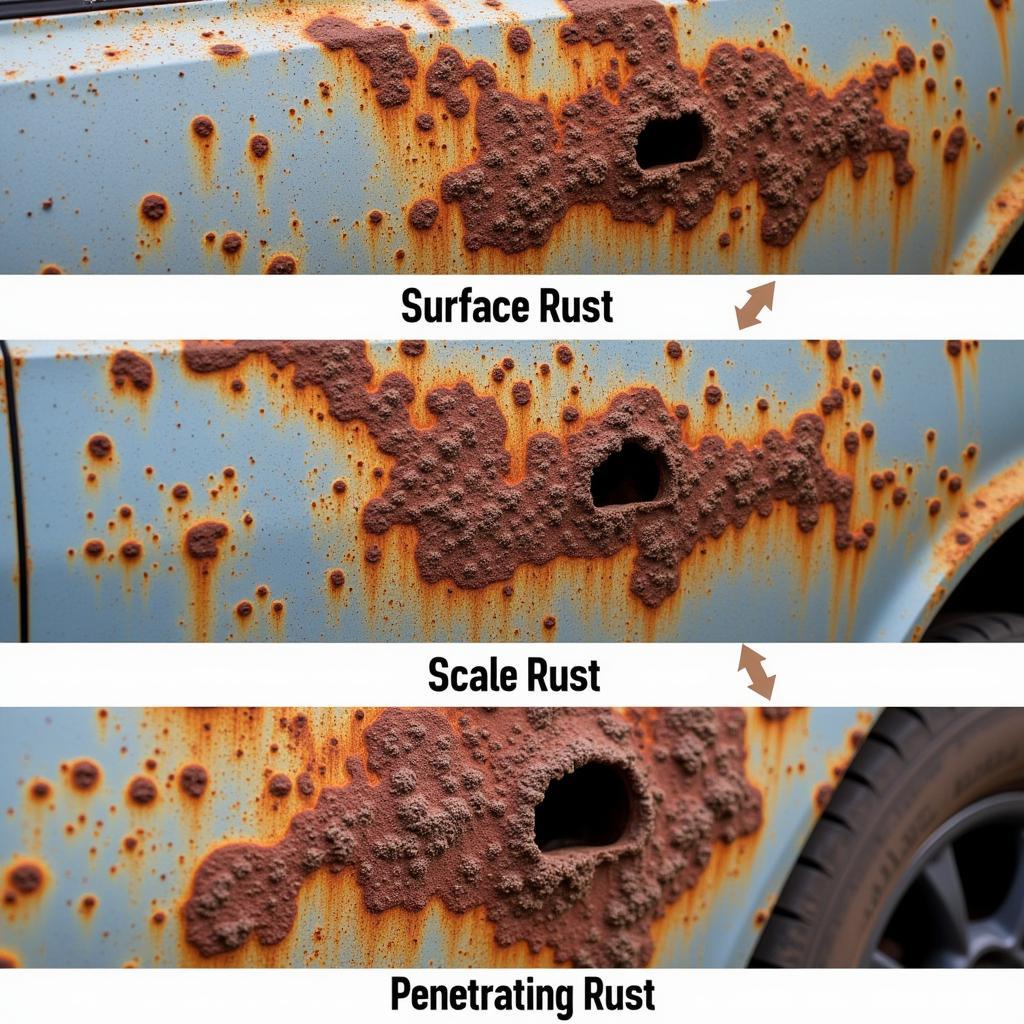Can Any Car Be Fixed? This is a common question among car owners facing a mechanical malfunction. While the short answer is often yes, the real answer is a bit more nuanced and depends on several factors. This article dives deep into the world of automotive repair to help you understand what’s truly fixable and what’s not.
Can you get leased car fixed anywhere? Well, the fixability of a car depends on the extent of the damage, the availability of parts, and the cost-effectiveness of the repair. Sometimes, the cost of repair can exceed the car’s value, making it economically impractical to fix. Other times, parts might be obsolete or unavailable, particularly for older or less common models.
Understanding the Fixability of Your Car
Several key factors influence whether a car is worth fixing. Let’s break them down:
- Extent of the Damage: A minor fender bender is a whole different ballgame compared to a catastrophic engine failure. The more extensive the damage, the more complex and costly the repair will be.
- Availability of Parts: If your car is a rare model or uses discontinued parts, sourcing replacements can be challenging and expensive. Sometimes, even common parts can be back-ordered for months, leading to lengthy repair times.
- Cost vs. Value: This is the crucial question. If the repair cost approaches or exceeds the car’s market value, it might be more sensible to consider replacing the vehicle altogether.
- Your Mechanical Expertise: Some repairs are relatively simple DIY projects, while others require specialized tools and knowledge. Accurately assessing your own capabilities is essential to avoid making things worse.
Is it Worth Fixing an Old Car?
Can any car be fixed, even an old one? Older cars present unique challenges. Rust, corrosion, and wear and tear can make repairs more complicated and expensive. However, sentimental value, classic car status, or simply the desire to avoid a car payment can justify fixing an older vehicle.
Factors to Consider When Fixing an Older Car:
- Sentimentality: Does this car hold special memories or significance? Sometimes, the emotional value outweighs the financial considerations.
- Collectibility: Is your car a classic or potentially valuable in the future? Restoring a classic car can be a rewarding experience and a smart investment.
- Overall Condition: Is the rest of the car in good shape? If the engine is the only major issue, a repair might be worthwhile. However, if multiple systems are failing, it could be a sign of impending doom.
“Many car owners underestimate the value of regular maintenance. A little preventative care can go a long way in avoiding costly repairs down the road.” – John Davis, Automotive Engineer
Can I Fix My Car Myself?
How to fix a broken car remote control or even the locking mechanism on car door are examples of DIY fixes. However, attempting complex repairs without proper training and tools can be dangerous and lead to further damage.
DIY vs. Professional Repairs:
- Assess your skills honestly: Are you comfortable working with tools and diagnosing mechanical issues? If not, it’s best to leave it to the professionals.
- Research the repair thoroughly: Understand the steps involved and the potential risks before you start.
- Invest in quality tools: Using the right tools is crucial for a successful repair.
“Modern cars are complex machines. While some repairs are manageable for DIY enthusiasts, others require specialized diagnostic equipment and expertise.” – Maria Sanchez, Certified Automotive Technician
Can I take my car anywhere to have a recall fixed? Recalls are usually handled by authorized dealerships. Fix for your car can range from minor adjustments to major overhauls. Remember, maintaining your car is always cheaper than fixing it. For expert advice and reliable repairs, contact AutoTipPro at +1 (641) 206-8880. Our office is located at 500 N St Mary’s St, San Antonio, TX 78205, United States.
Conclusion
So, can any car be fixed? Technically, most cars can be fixed. However, the feasibility and cost-effectiveness of the repair are the ultimate deciding factors. Consider the extent of the damage, availability of parts, and the overall value of your car before making a decision. Remember, preventative maintenance is always the best approach.
FAQ
-
What are the most common car repairs? Common repairs include brake pad replacements, oil changes, tire rotations, and battery replacements.
-
How can I tell if my car needs a major repair? Warning signs include unusual noises, leaks, warning lights on the dashboard, and changes in performance.
-
How often should I take my car for maintenance? Consult your owner’s manual for the recommended maintenance schedule.
-
How can I find a reliable mechanic? Ask for recommendations from friends and family, check online reviews, and look for certifications.
-
What should I do if my car breaks down on the road? Pull over to a safe location, turn on your hazard lights, and call for roadside assistance.
-
How can I avoid costly car repairs? Regular maintenance, careful driving habits, and addressing minor issues promptly can help prevent major problems.
-
What is the average lifespan of a car? With proper care, modern cars can last for 150,000 to 200,000 miles or more.





Leave a Reply